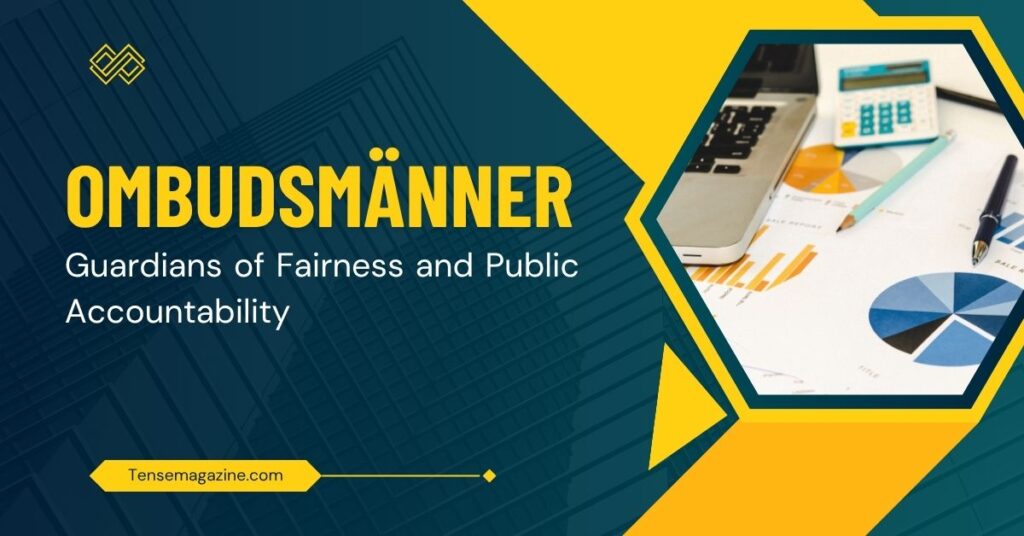Have you ever felt overwhelmed by bureaucracy or unsure of where to turn when something goes wrong with public services? You’re not alone. Many citizens face similar challenges, often feeling lost in a sea of red tape and regulations. Enter the ombudsmannen—your advocate in navigating these complex systems. These professionals are dedicated to ensuring fairness, accountability, and transparency within government and organizations. From resolving complaints to promoting better practices, ombudsmänner play a vital role in bridging the gap between citizens and institutions. Let’s dive into what makes them essential for modern society!
What is an Ombudsman?
An ombudsman is an independent official who investigates and addresses complaints from the public regarding government agencies or organizations. Their primary goal is to promote transparency and accountability.
These professionals serve as a bridge between citizens and institutions, ensuring that individual concerns are heard and addressed. They often have the authority to recommend changes or improvements based on their findings.
Ombudsmänner operate in various sectors, including healthcare, education, and finance. This versatility allows them to tackle a wide range of issues affecting everyday life.
By providing a neutral platform for grievances, they help maintain trust in public services. Citizens can approach an ombudsman without fear of retaliation or bias, knowing that their interests will be protected.
The History and Purpose of Ombudsmen
The concept of an ombudsman dates back to Sweden in the early 19th century. The Swedish Parliament established the first ombudsman in 1809 to ensure government accountability.
This innovative role was designed to address citizens’ complaints against the state and promote fairness. Over time, other countries recognized its value, leading to widespread adoption across various sectors.
Ombudsmen serve as impartial intermediaries between individuals and institutions. Their primary purpose is to uphold justice by investigating grievances while safeguarding rights.
They play a crucial role in fostering transparency and enhancing public trust in governmental operations. By advocating for citizens’ concerns, they help bridge gaps between bureaucracy and ordinary people’s experiences.
As society evolved, so did their responsibilities. Today’s ombudsmänner tackle diverse issues ranging from consumer protection to healthcare advocacy, reflecting changing societal needs and challenges.
Types of Ombudsmen
Ombudsmen come in various forms, each designed to address specific issues within society. The most common type is the governmental ombudsman. These officials oversee public agencies and ensure accountability, providing a crucial link between citizens and government.
Another category includes organizational ombudsmen. They are often found in large institutions like universities or corporations. Their role is to navigate internal conflicts, offering mediation without bias.
Healthcare ombudsmen serve patients by addressing complaints related to medical services and facilities. They advocate for patient rights while promoting transparency within the healthcare system.
Educational ombudsmen focus on issues faced by students and parents in schools or universities. They play a vital part in resolving disputes involving educational policies or practices.
Each type of ombudsman plays a significant role, ensuring that individuals have access to fair processes across different sectors of society.
How Ombudsmen Help Citizens
Ombudsmen play a crucial role in bridging the gap between citizens and institutions. They provide a safe space for individuals to voice their concerns. This accessibility empowers people who may feel marginalized or unheard.
By investigating complaints, ombudsmänner ensure accountability within organizations. Their impartial approach fosters trust and transparency in processes that often seem opaque.
Moreover, they offer guidance on navigating complex bureaucracies. Citizens can receive advice on how to address grievances effectively, making the process less daunting.
In addition to resolving individual issues, ombudsmen contribute to systemic change. By identifying patterns of misconduct or inefficiency, they advocate for necessary reforms that benefit everyone.
Their work enhances civic engagement by encouraging people to assert their rights confidently. The presence of an ombudsman reassures citizens that someone is looking out for their interests amidst the complexities of modern governance.
Examples of Successful Ombudsman Programs
Several countries have established successful ombudsman programs that effectively address citizen grievances. In Sweden, the Parliamentary Ombudsman has been pivotal in ensuring governmental accountability since 1809. This institution empowers citizens to report injustices and promotes transparency within public administration.
New Zealand’s Health and Disability Commissioner exemplifies how an ombudsman can enhance service quality in healthcare. By investigating complaints, it ensures patients receive fair treatment while also guiding providers on better practices.
In Canada, the Office of the Ombudsman serves as a crucial link between citizens and government agencies. It resolves disputes related to federal services and acts as a watchdog for systemic issues affecting various communities.
These examples highlight how diverse approaches to ombudsmänner can yield positive outcomes across different sectors, enhancing trust between authorities and the public while fostering responsive governance.
Limitations and Challenges Faced by Ombudsmen
Ombudsmen play a vital role, but they face significant challenges. Limited authority is one such hurdle. Many ombudsmen can only recommend actions rather than enforce them.
Resource constraints also hinder effectiveness. They often operate with tight budgets and staff shortages, impacting their ability to investigate complaints thoroughly.
Public awareness presents another challenge. Many citizens are unaware of the existence of ombudspersons or how to reach them for assistance, leading to underutilization of these services.
Political pressures may complicate matters further. Ombudsmen must navigate complex relationships with government entities while maintaining independence in their investigations.
The evolving nature of society brings new issues that require adaptability and innovation from ombudsman offices. Staying relevant amid rapid changes poses an ongoing challenge for these essential public advocates.
Conclusion: The Importance of Ombudsmen in Modern Society
Ombudsmen play a vital role in contemporary society. They serve as an essential bridge between citizens and institutions, ensuring that grievances are addressed fairly and justly. Their presence fosters transparency, accountability, and trust within various sectors.
By advocating for individuals’ rights and addressing systemic issues, ombudsmänner strengthen democracy. They empower people by providing accessible means to voice their concerns without fear of retaliation or dismissal. This accessibility is crucial in fostering an informed citizenry capable of engaging with government structures.
Moreover, the diverse types of ombudsmen cater to specific needs across different fields—whether it’s healthcare, education, or consumer affairs. Each type addresses unique challenges while upholding the principle of fairness.
Despite their many successes, ombudsmänner face obstacles such as limited resources and varying levels of public awareness about their services. However, these challenges do not diminish the importance of their work; rather they highlight areas needing improvement.
The continued evolution of ombudsman programs is essential for adapting to societal changes and enhancing service delivery. As modern societies grow more complex, the need for impartial advocates who prioritize justice becomes increasingly significant.


